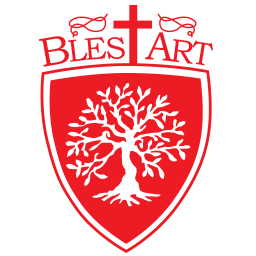On Dec. 7, the Catholic Church celebrate the memory of St. Ambrose, the brilliant Bishop of Milan who influenced St. Augustine's conversion and was named a Doctor of the Church.
Like Augustine himself, the older Ambrose (born around 340) was a highly educated man who sought to harmonize Greek and Roman intellectual culture with the Catholic faith. Trained as a lawyer, he eventually became the governor of Milan. He manifested his intellectual gifts in defense of Christian doctrine even before his baptism.
While Ambrose was serving as the governor of Milan, a bishop named Auxentius was leading the diocese. Although he was an excellent public speaker with a forceful personality, Auxentius also followed the heresy of Arius, which denied the divinity of Christ.
Although the Council of Nicaea had reasserted the traditional teaching on Jesus' deity, many educated members of the Church –including, at one time, a majority of the world's bishops– looked to Arianism as a more sophisticated and cosmopolitan version of Christianity. Bishop Auxentius became notorious for forcing clergy throughout the region to accept Arian creeds.

